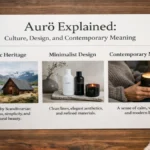Anyone who’s gone through a trauma severe enough to have PTSD will understand that the effects can impact every aspect of their day-to-day lives.
One of the hardest-hit areas affected by trauma is your relationship. It can be a challenge to trust someone after what you’ve gone through or for them to understand how much it changed you, from anxiety and frustration to extreme avoidance tactics.
Whether it’s someone you’ve always been close to or a new person in your life, building and sustaining bonds when PTSD is involved takes on a new level of patience and trust. You may find yourself lashing out without meaning to or unable to relax enough to let down your guard. These behaviors will likely make your loved ones withdraw to protect themselves, and the cycle goes round and round until one person leaves.
The good news is this doesn’t have to be the way it goes. It is possible to find and maintain love while healing after post-traumatic stress disorder. This blog will discuss the facts you need to know to be successful with this goal.
1. Recognize Your Relationships
When we think of the term “relationship,” most of us often view it as a romantic partnership. But everyone you’re in regular communication with, from your friends and family to your co-workers and boss, has a relationship with you.
Your PTSD symptoms can affect all of these connections, so you need to recognize the ones that are important to you and work hard to prevent damage to them.
For example, your PTSD symptoms may include a struggle to communicate with others and tell them how you feel. If this is difficult for you to do in person, find another way to share your feelings and thoughts, such as email or text. Consider asking someone that you do trust to review the message before you send it and ensure it has the right tone.
2. Understand Your Intimate Relationships
As with relationships, most of us think of intimacy as an extra closeness between two people romantically interested in each other. Intimacy is actually a deep closeness, either emotional or sexual. It doesn’t have to be with your partner. It can be with a friend whom you feel vulnerable around or who shares their emotions with you.
When one person is intimate, and the other is stand-offish, it can damage the relationship. There’s an expectation of trust that works both ways in these types of connections.
Understand when you’re involved in a deeper connection with another person, such as when they are sharing important personal information with you. Be honest with them about your trauma, even if you don’t go into detail (that’s up to you). Let them know that you’re trying to heal, but you’re dealing with a lot of challenges that affect your self-image, confidence, and trust.
You’ll find that people are more likely to be patient with you when you’re open about your fears and vulnerabilities. And if they can’t handle you at this stage in your life, you’re better off knowing that now.
3. Look for Examples of “Normal” Relationships
Normal relationships? What are those?
It’s true that they may seem few and far between today, but they do exist. Talk to a mental health counselor who can recommend books or webinars that discuss healthy relationships. If part of your trauma includes sexual behavioral changes, ask for help with that area, as well.
Many people who have been sexually abused equate that abuse with normalcy in a relationship, which makes them either avoid physical intimacy or search for it in similarly abusive ways. Neither of these extremes is healthy.
The same theory applies to any extreme you notice that becomes part of your habits after a trauma. Whether it’s that you’re overly attached to people too easily, or you can’t attach at all, or you avoid certain situations because they might trigger your memories, these extremes are not typical.
Watching how other healthy people connect with each other, grow their relationships, and navigate conflict gives you examples of what your interactions should look like.
While you’re working on growing your knowledge of healthy relationships, your doctor may recommend medication to soothe your anxiety. There are prescription meds, like medical marijuana, that have been shown to be effective forms of treatment for PTSD. With an MMJ license from companies like Veriheal, you can enjoy the benefits of legal cannabis in Ohio and many other states.
Conclusion
Just as no two people share the same trauma experience, no PTSD symptoms are the same. But as you attempt to heal from your wounds and build a relationship with other people, you can find and maintain love by recognizing those who are important around you. Knowing how you are responding versus what a healthy interaction looks like will ensure you continue to grow and thrive beyond your past.











